Alabama Power customers to get $62 million in rebates
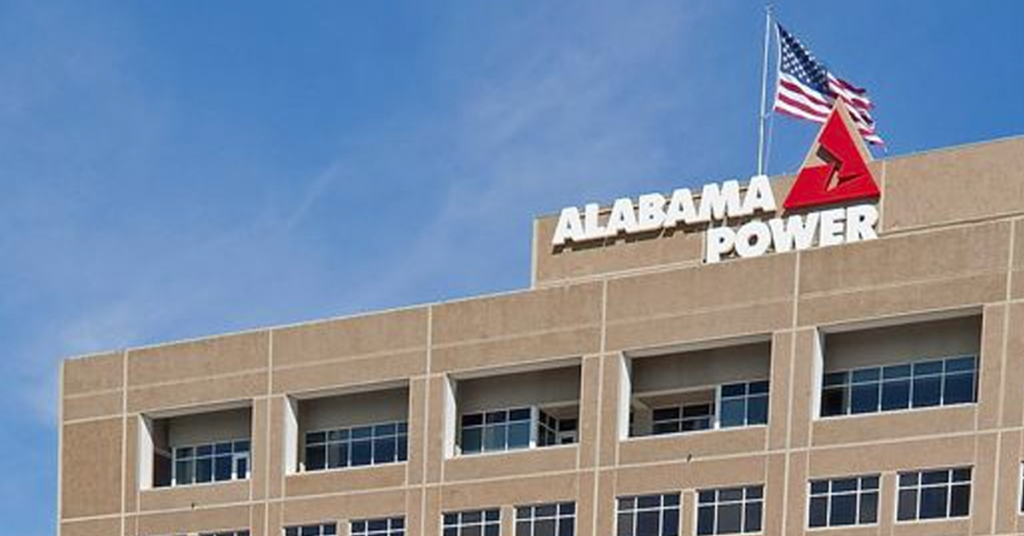
On Tuesday, the Alabama Public Service Commission (PSC) voted to give $62 million back to Alabama Power Company customers. After reviewing Alabama Power’s financials, the PSC determined that the utility had overestimated fuel costs this winter. The vote to rebate the funds was a 3 to 0 vote at the PSC’s most recent meeting. The PSC regulates state-licensed monopolies. Alabama Power Company is guaranteed by the PSC to make a profit, but it cannot price gouge its customers. Alabama Power Customers are expected to get a credit on their August bills of about $20. “I think a direct refund is the best way to proceed here, but I also believe the refund would be more impactful if it is made during the summer when residential usage and, therefore, their bills are higher and would equate to a larger return for those consumers,” said Public Service Commission President Twinkle Andress Cavanaugh during the meeting. The purpose of the Alabama Public Service Commission is to provide a balance between regulated companies and consumers to provide consumers with safe, adequate, and reliable services at affordable rates. The PSC approved three rate increases for Alabama Power during 2022 due to rising fuel costs. The entities regulated by the APSC include privately owned corporations providing electric, gas, and water service to the public and select providers of telecommunication and wastewater services. Additionally, railroads, buses, trucking companies, and taxis operating outside police jurisdictions on a for-hire basis remain under the oversight of the APSC. Effective July 1, 2018, Transportation Network Companies were placed under the jurisdiction of the APSC pursuant to Alabama Legislative Act 2018-127. The APSC has a staff of 66. The PSC is governed by a president and two associate commissioners who are elected on a statewide basis. Each commissioner is elected to serve a four-year term, with the president’s term staggered by two years from the associate commissioners’ terms. The other two commissioners, Jeremy Oden and Chip Beeker, were just reelected in 2022. Cavanaugh faces voters in the 2024 presidential election. The State of Alabama has two primary electric power generators – the Alabama Power Company (a division of the Southern Company) and the Tennessee Valley Authority (TVA). Because TVA is an entity of the federal government and the U.S. Constitution gives federal law supremacy over state law, the APSC does not have regulatory authority over TVA. Alabama Power has 1.5 million customers. Twenty-five percent of the company’s power is generated by burning oil and natural gas, 43 percent is produced by burning coal, 24 percent is nuclear, and 8 percent is produced through hydroelectric dams. 24.34% of Alabama Power’s costs are spent on fuel and purchased power. The company has total revenues of $5,678,066,345. To connect with the author of this story or to comment, email brandonmreporter@gmail.com.
Ninth Amendment would give Public Service Commission regulatory power over private sewer System in Lake View
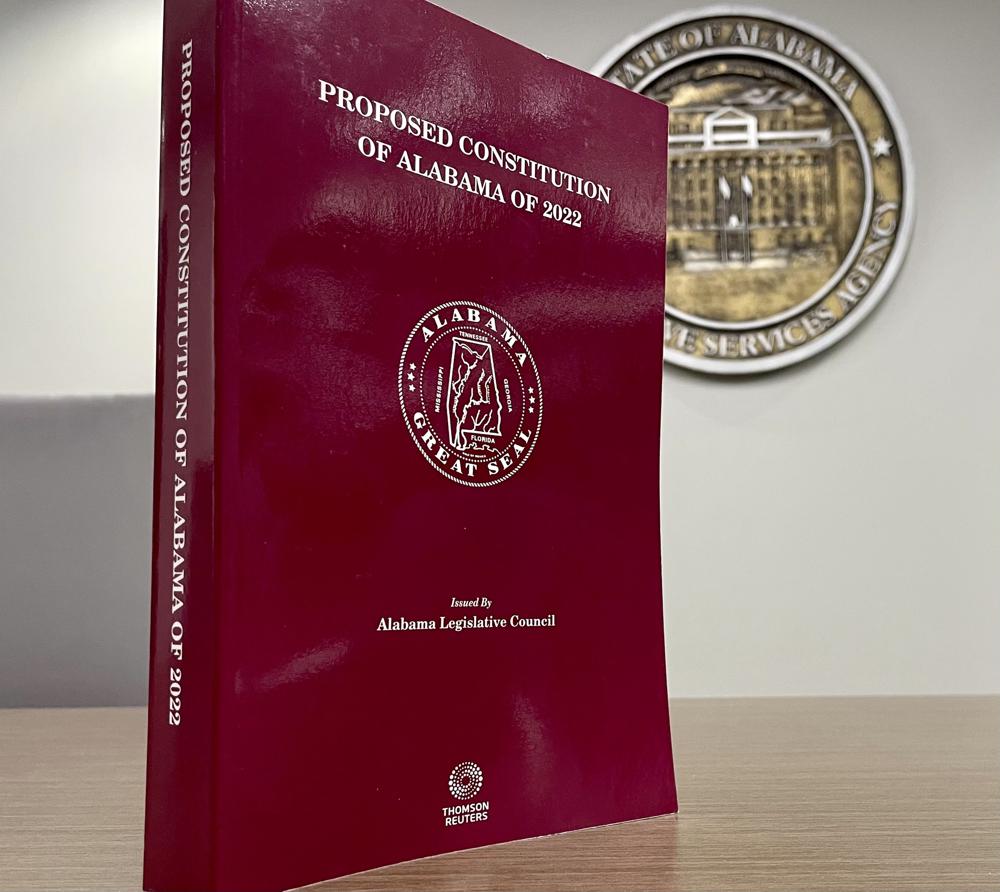
On Tuesday, Alabama voters will go to the polls to elect new leaders, vote on whether or not to ratify the recompiled constitution and consider ten statewide amendments, as well as many local issues. The Ninth Amendment directly affects the community of Lakeside in Tuscaloosa and Jefferson Counties. The State Legislature is recommending that the Alabama Public Service Commission (PSC) be tasked with regulating the private sewer system in Lake View. A “yes” vote would be in support of having the PSC regulate privately owned sewer systems and plants in Lake View, Alabama, from 2023 to 2027. A “no” vote would keep things as they are now, and the PSC would not regulate Lakeside’s privately owned sewer systems. Amendment 9 is somewhat similar to Amendment 8, which would allow the PSC to regulate privately owned and operated sewer systems in Shelby County. When the PSC is given oversight authority over a sewer system, it can set rates and establish rules and regulations for its operation. This is on the statewide ballot because two State Senators voted no on the motion to consider the local application. Amendment 9 is similar to Amendment 8, which would authorize the PSC to regulate sewer systems in Shelby County. Amendment 9 reads: “Relating to Jefferson County and Tuscaloosa County, proposing an amendment to the Constitution of Alabama of 1901, to bring certain privately owned sewer systems that use public rights-of-way of public roads in the city limits of Lake View under the jurisdiction of the Public Service Commission, beginning January 1, 2023, and ending December 31, 2027. (Proposed by Act 2022-288).” Voters can vote yes or no. Under Amendment 9, “Any privately owned plant, property, or facility used for the collection, treatment, or disposal of sewage that uses, directly or through a lease or contract, public rights-of-way of public roads for any part of its collection or disposal system and that has residential or commercial customers located in the city limits of Lake View in Tuscaloosa County and Jefferson County that are billed a flat service fee or fee based on water usage shall be certified and regulated by the Public Service Commission, beginning January 1, 2023, and ending December 31, 2027, in relation to all of the customers of the entity located in the city limits of Lake View in Jefferson County and Tuscaloosa County, and in the unincorporated areas of Tuscaloosa County.” In addition to the constitutional changes, Alabama voters will also vote for new elected leaders. These include Governor, Lieutenant Governor, Attorney General, Commissioner of Agriculture and Industries, two of the three PSC members, Treasurer, Secretary of State, State Auditor, U.S. Senate, seven members of Congress, all 35 members of the Alabama State Senate, all 105 members of the Alabama House of Representatives, members of the state school board, as well as numerous county offices. Voters must vote at their assigned polling place. To participate in an Alabama election, the voter must bring a valid photo ID to the polls. Polls will open at 7:00 am and close at 7:00 pm. Voters without a valid photo ID may obtain a free voter ID from their local board of registrars or by contacting the Alabama Secretary of State’s Office. There is no same-day registration in Alabama, so if you have moved but have not updated your registration, you will need to vote at the polling place where you previously lived. If you are not already a registered voter in Alabama, you will not be able to participate in Tuesday’s election. There is no electronic voting in Alabama. To connect with the author of this story, or to comment, email brandonmreporter@gmail.com.
Amendment 8 would allow the Public Service Commission to regulate private sewer systems in Shelby County

Voters go to the polls on Tuesday to consider several important constitutional changes to the state constitution. Among these is Alabama Amendment 8, which would give the Alabama Public Service Commission (PSC) the authority to regulate privately owned and operated sewer systems in Shelby County. A “yes” vote of Amendment 8 would authorize having the state Public Service Commission regulate privately owned sewer systems and plants in Shelby County. This would also include giving the PSC authority over setting their rates and charges in Shelby County. A “no” vote on Amendment 8 would prevent the Public Service Commission from regulating privately owned sewer systems in Shelby County. The plants and systems could operate as they do now and would change nothing. If ratified by the voters of Alabama, the PSC would become responsible for implementing the change gradually. Until the PSC determines new rates and charges, the rates and charges would remain the most recent rate agreement or the utility’s most recent published rate. If a county, municipality, or a governmental utility service corporation (GUSC) in the county has a rate control agreement with a private facility, then the county, municipality, or GUSC could choose to opt-out of regulation by the PSC. The PSC is a three-member board that is elected statewide. They are tasked with regulating utility companies in the state. When the PSC has oversight over a wastewater service, the commission has the power to approve or reject rates and establish rules and regulations for their operation. Amendment 9 is very similar, but it applies to just the sewer system regulation in the town of Lakeview, which is in Tuscaloosa and Jefferson Counties. Amendment 8 will read, “Relating to Shelby County, proposing an amendment to the Constitution of Alabama of 1901, to bring certain privately owned sewer systems that use public rights-of-way of public roads under the jurisdiction of the Public Service Commission under certain conditions. (Proposed by Act 2021-199).” There are ten statewide amendments on Tuesday’s ballot. The Legislature is also asking the voters to ratify their recompiled version of the Alabama Constitution of 1901. There are also some local amendments and measures on the ballot in various jurisdictions across the state. At least two counties are also voting on raising property taxes. The St. Clair County School board is asking for parts of the county to approve property tax increases to fund school construction projects. In addition to the constitutional changes, Alabama voters will also vote for new elected leaders. These include Governor, Lieutenant Governor, Attorney General, Commissioner of Agriculture and Industries, two of the three PSC members, Treasurer, Secretary of State, State Auditor, U.S. Senate, seven members of Congress, all 35 members of the Alabama State Senate, all 105 members of the Alabama House of Representatives, members of the state school board, as well as numerous county offices. Voters must vote at their assigned polling place. To participate in an Alabama election, the voter must bring a valid photo ID to the polls. Polls will open at 7:00 am and close at 7:00 pm. Voters without a valid photo ID may obtain a free voter ID from their local board of registrars or by contacting the Alabama Secretary of State’s Office. Alabama has no same-day registration, so if you have moved but have not updated your registration, you will need to vote at the polling place where you previously lived. If you are not already a registered voter in Alabama, you will not be able to participate in Tuesday’s election. There is no electronic voting in Alabama. To connect with the author of this story, or to comment, email brandonmreporter@gmail.com.
Alabama Power accepting requests for renewable energy proposals through Oct. 26

Alabama Power is seeking proposals through Wednesday, October 26, for potential renewable energy projects. “We are eager to test the market to see if there are renewable projects that may make economic sense for our customers,” said John Kelley, Alabama Power’s director of Forecasting and Resource Planning. “We have always supported a diverse portfolio of energy resources as we strive to meet our customers’ desire for clean, safe, reliable, and affordable energy.” On September 9, the company issued a request for proposals (RFP) for renewable energy resources. Under the renewables RFP, the company will consider a variety of proposals, including solar, wind, and geothermal projects, energy from tidal or ocean currents, and low-impact hydro and biomass. Projects involving gas derived from sewage treatment processes, solid municipal waste or landfills, and heat and power projects may be submitted. The submitted projects must be at least 5 megawatts but no larger than 80 megawatts. Turnkey projects and purchased power agreements can also be submitted with terms of 10- or 25 years. Alabama Power would receive all the environmental attributes from the projects. The RFP will also explore and evaluate the potential of renewable energy storage technologies. All projects submitted must be in Alabama and connect directly to the company’s electric system. The proposals also must meet the criteria of the Green-e energy National Standard for Renewable Electricity Products, Gold Standard, the Climate Registry, or similar certifications approved by Alabama Power. Bids for the renewables RFP must be received by midnight on October 26, 2022. Recent projects from past renewable RFPs include the recently approved announced HEP Greenville and Walker Springs solar projects. It will take several months to analyze the projects to determine if any would be beneficial to Alabama Power customers. The company will look to pair potential projects with interested industrial and large commercial clients. Any project must be approved by the Alabama Public Service Commission. For more information about the renewables RFP, click here or go to www.alabamapower.com. Republished with the permission of The Alabama NewsCenter.
Alabama Power receives approval for solar facility in Butler County

The Alabama Public Service Commission today approved Alabama Power’s proposal for an 80-megawatt HEP Greenville solar project to be located in Butler County. The commission also approved a contract between Alabama Power and Wells Fargo to allow the bank to subscribe to a portion of the Renewable Energy Certificates (RECs) from the newly approved facility. This solar project is the largest facility to date under the Renewable Generation Certificate approved by the commission in 2015. Annual output generated from the HEP Greenville solar project is equivalent to the amount of energy used in nearly 15,000 homes. Under the 10-year contract, Wells Fargo will receive about 47% of the RECs from the solar facility, equivalent to 80,000 MWh annually and representing about 80% of its electric needs in the state. Alabama Power will market the remaining RECs from the project to other customers. The project is expected to create about 250 construction jobs while generating more than $6 million in tax revenue for Butler County and the city of Greenville over the life of the project. Commercial operation is expected to begin by January 2024. “We appreciate the commission’s vote today and are excited about our partnership with Wells Fargo to build on our focus of delivering long-term value to our customers while growing solar resources,” said Tony Smoke, Alabama Power’s senior vice president of Marketing and Economic Development. Since 2017, Wells Fargo has met 100% of its global electricity requirements with renewable energy through the purchase of RECs. Today’s announcement transitions the firm’s efforts to long-term agreements that support the development of net-new sources of renewable energy. To date, Wells Fargo has entered into more than 120 long-term contracts, supporting the development of more than 825 megawatts of net-new renewable energy. In addition to helping Wells Fargo meet its environmental goals, the strategy helps deliver community benefits like job creation, tax revenue, and economic development where its customers and employees live and work. “Leveraging our annual energy spend to advance green infrastructure development in the U.S. and create new revenue streams for communities is one way we are helping contribute to more sustainable, equitable, and resilient communities,” said Richard Henderson, head of Wells Fargo’s Corporate Properties Group. “We appreciate the collaboration with Alabama Power to advance our enterprise sustainability goals in a way that benefits the local economy.” This project is the fourth approved under the Renewable Generation Certificate, in addition to the Anniston Army Depot, Fort Rucker, and LaFayette solar projects. To date, the commission has approved about 170 megawatts of solar generation under this certificate. By Alabama NewsCenter Staff
Lawsuit says Alabama blocking solar power with unfair fees

The fees imposed by the Alabama Power company on customers who generate their own electricity with rooftop or on-site solar panels are now the subject of a federal lawsuit against the state’s regulators. Environmental groups argue that punishing fees are purposely discouraging the adoption of solar power in the sun-rich state. Alabama Power maintains that the fees are needed to maintain the infrastructure that provides backup power to customers when their solar panels don’t provide enough energy. The Southern Environmental Law Center and Ragsdale LLC filed the lawsuit on Monday against the Alabama Public Service Commission on behalf of four Alabama Power customers who installed solar panels on their properties and the Greater-Birmingham Alliance to Stop Pollution, or GASP. “We’re asking the court to require the Commission to follow the law so that Alabama Power will stop unfairly taxing private solar investments,” said Keith Johnston, director of SELC’s Alabama office. “Alabama is being left behind by other Southern states when it comes to solar generation, and the jobs, bill savings, and other benefits that come with it,” SELC’s statement said. “These charges are a significant roadblock to our state’s success.” A spokesperson for the Public Service Commission wrote in an email that “it would not be appropriate for the Alabama Public Service Commission to comment on pending litigation.” Alabama Power charges a $5.41-per-kilowatt fee, based on the capacity of the home system, on people who use solar panels or other means to generate part of their own electricity. That amounts to a $27 monthly fee on a typical 5-kilowatt system. The average solar panel setup for home costs about $10,000, according to the law center, and the fees add another $9,000 or so over a system’s 30-year lifespan, dramatically increasing costs and reducing any financial benefit for the homeowner. Alabama Power maintains that the fees are needed to maintain the infrastructure that provides backup power. A spokesperson for Alabama Power said, “We believe Alabama law and sound rate-making principles were followed in reaching a fair determination of the cost for this service.” “It is important to us that all of our 1.5 million customers are treated fairly. There is nothing about the lawsuit that changes our position – we believe the lawsuit is without merit. Customers who want to rely on the company to back up their own generation should pay their share of associated costs,” Alabama Power spokesperson Alyson Tucker wrote in an email. The Federal Energy Regulatory Commission rejected the environmental groups’ request to take enforcement action last month against the Public Service Commission. However, two members of the five-member panel issued a separate statement expressing concern that Alabama regulators may be violating federal policies designed to encourage the development of cogeneration and small power production facilities and to reduce the demand for fossil fuels. Republished with the permission of the Associated Press.
Alabama Power customers reap federal tax reform benefits this month
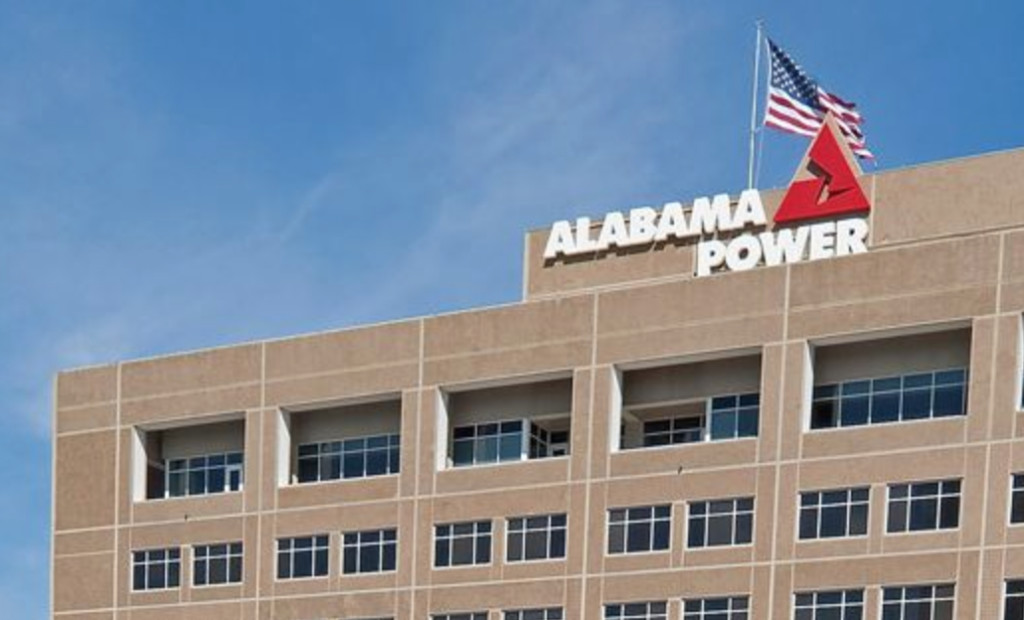
Alabama Power customers are beginning to benefit this month from a decision made by the Alabama Public Service Commission related to federal tax reforms. Starting with July bills, the typical monthly bill for a residential customer is being reduced by more than $9 each month for the remainder of the year. “We are pleased to begin providing these savings to our customers,” said Richard Hutto, vice president of Regulatory Affairs for Alabama Power. The federal tax reform legislation, approved late last year, lowered corporate income tax rates, which reduces taxes for Alabama Power. Taxes levied on the company are passed on, so a lower tax rate directly benefits Alabama Power’s 1.4 million customers. This is the first portion of $337 million in savings coming to all Alabama Power customers through 2019. Republished with the permission of the Alabama Newscenter.
Five things you need to know about Chip Beeker

Incumbent Public Service Commissioner Place 2 candidate Chip Beeker won the June 5 primary with ease garnering over 68 percent of the vote. But now that the primaries are over, the real battle has begun. Beeker will now face Democratic nominee Kari Powell in the November 6 general election for the PSC seat. With that in mind, here are the five things you need to know about Chip Beeker: 1. He’s a farmer by trade. Before being elected for his first term on the Public Service Commission in 2014, Beeker was the owner and operator of Beeker Catfish and Cattle Farms, and the Beeker Timber Company in Eutaw, Ala. 2. He was a county commissioner for 20 years. First elected in 1986, Beeker served as a member of the Greene County Commission until 2006. During his time in office, he served as Chairman of the commission for ten years. He also served on several advisory boards throughout the Black Belt, coached basketball and baseball at Warrior Academy, and was selected as a Pillar of West Alabama by the Community Foundation of West Alabama. 3. He served in the National Guard for 8 years. After graduating from Greene County High School, Beeker joined the National Guard where he served for eight years. He later went to college at the University of West Alabama. 4. He has actual experience working in the energy industry. Following his graduation from the University of West Alabama, where he earned a degree in Commerce and Business; Beeker worked at the James M. Barry Steam Plant and the William Crawford Gorgas Electric Generating Plant, giving him first-hand knowledge of renewable energy in Alabama. 5. He seemingly sought to make a profit from his office. Perhaps the most crucial of the five things to know about Beeker is that he seemingly sought to make a profit from his office. In 2016 Beeker was interested in leasing his personal farm property — 451 acres he owns in Greene County — to a solar energy company, to Virginia-based Coronal Development Services, that planned to sell energy to Alabama Power for solar facilities. The conflict? The PSC regulates Alabama Power. For clarity’s sake, Coronal apparently did not know Beeker was a member of the PSC when the contract was offered. Seeming to understand the potential ethics issue, Beeker first went to the PSC’s in-house ethics authority — administrative law judge John Garner — who told him he had every right to pursue the contract, but suggested Beeker seek the opinion of the Alabama Ethics Commission for a more definitive response. The Commission ultimately told him no, he could not lease the land to the power company, saying they could not conclude that the lease wouldn’t present a conflict of interest between Beeker and his office. The contract would have awarded his $500 an acre for at least 25 years. If Beeker had been able to lease all of the acreage available he could have made over $5.6 million over the course of the contract. In a hope to save his name, Beeker relied on the fact that he first approached Garner, who said it was okay to pursue the contract. “I would like to publicly say that everything I did, I did with the blessing of Judge Garner,” Beeker told Lagniappe Mobile. “When I got a call in the spring, could somebody come see me and look at something, I said, ‘I’ll let you know.’ And when I had his blessing and permission, I did.” “I’ve done nothing, absolutely nothing but the letter of the law and the blessing of the judge,” Beeker continued. “Those are the facts and I appreciate being able to say that.”
Donald Trump tax reform means more money in your pocket

The Trump presidency, while controversial in some ways, has also been very effective in others. We should give credit where credit is due. Trump’s plan is a win for Alabama families who will have more money in their pockets in coming months due to the national tax reform plan passed by Congress and signed by the President right before Christmas. If you missed it, last week the Alabama Public Service Commission (PSC) voted on $337 million in energy cost relief for Alabama residents. It’s estimated that families will save around $250 from July, when the savings go into effect, through the end of the year. Even House Speaker Paul Ryan highlighted the benefits of the cuts here in Alabama in a release from his office. In the few months following the passage of the Tax Cuts and Jobs Act, utility companies in 48 out of 50 states, and DC, have taken action to pass their federal tax savings on to their customers. This means more than 87 million customers across the country—so far—are set to see lower monthly utility bills. Just this week, Alabama Power Company announced that it would be reducing its customers’ bills by $257 million this year. That’s 1.4 million Alabamians who will now be paying less each month for their utilities. The President doesn’t get a lot of good press even when he and his administration have positive results. At the same time Alabama’s Public Service Commission rarely makes the news, so lets not miss this opportunity to give both an “atta boy.”
Fundraising and ethics upfront in lieutenant governor’s primary
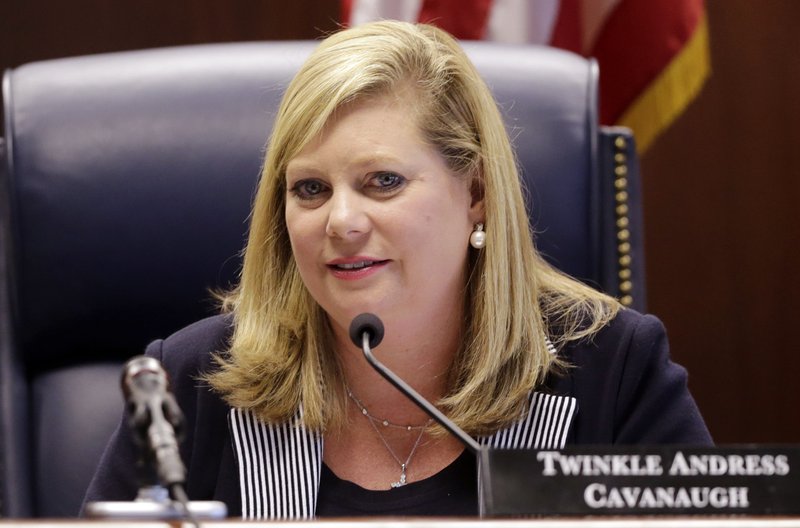
Three million dollars have poured into the Alabama lieutenant governor’s race as four candidates vie for a statewide position with limited responsibilities other than succeeding the governor. In the Republican primary, Alabama Public Service Commission president Twinkle Andress Cavanaugh is running against two state legislators: Rep. Will Ainsworth from Guntersville and Sen. Rusty Glover from Mobile. The lieutenant governor presides over the state Senate, but only casts a vote in the event of a tie. He or she serves on two dozen committees and appoints more than 400 state positions. The primary responsibility is succeeding the governor if he or she dies, resigns or is impeached. A failed Senate bill this year attempted to strip the lieutenant governor’s powers and criticized the role as simply a political stepping stone to the governor’s office. The lieutenant governor position has been vacant since April 2017 when Kay Ivey succeeded Robert Bentley as governor. Bentley quit while embroiled in a sex scandal. If Ivey wins election in November, she will be Alabama’s oldest governor at 74. Analyst and former University of Alabama politics professor William Stewart said Ivey would be unlikely to run for a second term. “The lieutenant governor race is more significant this year,” Stewart said. “More money has gravitated toward the race because it seems to be a foregone conclusion that whoever is elected as lieutenant governor this year, that person will almost automatically become the favorite for the governorship four years from now.” Stewart said Cavanaugh has name recognition advantage as an already elected statewide official. The Republican nominee will face Democrat Will Boyd, a minister who lost the U.S. Senate special election primary against Doug Jones last year. The four candidates are vying for funds ahead of the June 5 primary. As of April 19, Ainsworth and Cavanaugh have both raised just shy of $900,000. Cavanaugh started the campaign with more than $500,000 and Ainsworth loaned himself the same amount to match her. The most recent filings show that Cavanaugh outstripped her opponents by raising more than $70,000 in March, although Ainsworth still boasts more than $1 million currently in hand. Glover trails significantly, having raised just around $125,000. Boyd has raised less than $4,400. Beyond fundraising, ethics is a top issue in the race as the Legislature looks to review the state’s ethics law next year and lawmakers currently face corruption charges. GOP contenders are trumpeting their integrity and staunch conservatism. Cavanaugh, a seasoned politician, touts her six-year record as the Alabama Public Service Commission president. She said she has regulated ethics and cut costs, never taking a state car. She hands out her personal cellphone number because she believes elected officials should be approachable. Cavanaugh was on the ticket for governor last year but told The Associated Press that after meeting with Ivey, she decided she would run for “second-string quarterback” instead. “We need a very strong, ethical, honest and Christian public servant if necessary. We always pray that our governor is in good health and doing a good job, but we have to be prepared,” she said. In a private interview, Cavanaugh steered controversial subjects such as racial profiling toward her Christian faith and belief that Alabama has a “bright future” — a reference to her campaign slogan playing off her unique first name. Ainsworth, the owner of a sportsman’s lodge and founder of a prominent hunting and fishing expo, said his comparative lack of experience is a good sign that he’s not a corrupt career politician. “I don’t believe we’re going to solve problems that have plagued us for decades by hiring the same people. I think we’re a fresh face,” Ainsworth said. In his one term in the House of Representatives, Ainsworth sponsored bills to impose term limits and let voters recall elected officials who don’t keep campaign promises. This year, Ainsworth introduced a bill to arm trained teachers after a shooting at a high school in Parkland, Florida. He ran his first campaign ad using the catchphrase “teachers can’t arm themselves with a number 2 pencil.” Three-term state Sen. Glover is the only candidate with experience in the legislative body that the lieutenant governor leads. Glover is most well-known for introducing a resolution to stop changing clocks under daylight saving time. He said that as lieutenant governor he would promote education, and economic and workforce development. “I want to preside over the Senate in a fair way and be an honest person,” Glover said. “I want to be someone people can trust.” Boyd, the uncontested Democratic candidate, said he is fighting for education, health care and social equality. The primary is June 5. Republished with the permission of the Associated Press.
Support grows for bipartisan, statewide ridesharing bill
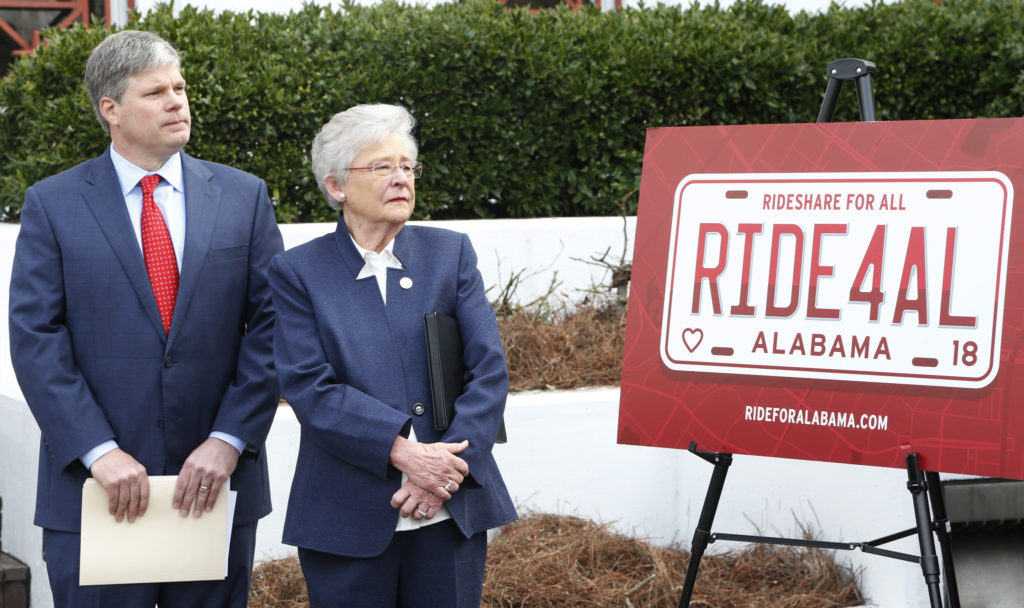
Want to take an Uber in Alabama? Well you can, depending on where you live. Currently, ridesharing companies like Uber and Lyft operate in only 15 of the larger cities across the state —Auburn, Birmingham, Daphne, Gardendale, Gulf Shores, Homewood, Hoover, Huntsville, Mobile, Montgomery, Mountain Brook, Pelham, Tuscaloosa, Trussville and Vestavia Hills — but due to a lack of comprehensive, statewide regulations aren’t able to operate in all parts of the state. Which is what Mountain Brook-Republican State Rep. David Faulkner and Greensboro-Democratic State Sen. Bobby Singleton hope to remedy this legislative session. They’re soon introducing a bill that would create a ridesharing network across the state for companies like Uber and Lyft, and place it under the control of the Alabama Public Service Commission. On Thursday, the pair was joined by Gov. Kay Ivey on the steps of the State House where they discussed plans for the bipartisan, statewide ridesharing legislation. They were also joined by the “Ride for Alabama” coalition, formed by supporters of the bill. More than 30 local rideshare drivers were also in attendance. “To embrace the future, Alabama must accommodate modern transportation demands. The ability to request an on-demand ride is no longer considered a perk of being in a big city, it is an expectation no matter where one lives or work,” Ivey at the press conference. “Having consistent rules statewide for ridesharing is the sensible way to give Alabamians access to safe, consistent and efficient transportation options.” Alabama is one of only six states that lacks statewide ridesharing regulations. If passed, the bill would allow Alabamians from not only the larger cities, but also suburban and rural communities across the state to take advantage of all benefits the ridesharing industry produces. “Alabama has the opportunity to make the best decision for the state’s future with regard to a statewide ridesharing framework, as the passage of this bill would provide citizens from one corner to the other with the opportunity for safe and reliable transportation,” said Faulkner. “Ridesharing creates transportation options for those with low incomes, the elderly, and people with disabilities,” added Singleton. “By increasing overall transportation access for all of Alabama, we are also creating new economic opportunities for our state.” Ride for Alabama is made up of multiple Chambers of Commerce and third-party entities, such as Birmingham Urban League, Decatur-Morgan County Chamber of Commerce, the National Association of Women Law Enforcement Executives, the Alabama Black Chamber of Commerce, Young Alabama and the Alabama Association for the Deaf, Inc., among others. “Embracing innovative and forward-thinking technology platforms like Lyft and Uber will continue to move Alabama forward,” said Deon Gordon, Ride for Alabama coalition member and president, TechBirmingham. “The time has come for Alabama to become the 45th state to expand these vital transportation options to all.”
Twinkle Andress Cavanaugh qualifies to run for Lieutenant Governor

The current president of the Alabama Public Service Commission (PSC), Twinkle Andress Cavanaugh, on Monday qualified with the Alabama Republican Party to run for Lieutenant Governor in the 2018 election cycle. The lifelong conservative Republican is the first GOP candidate to qualify for the race. “It is important for our state to have a strong conservative fighting for us and providing leadership in the Lieutenant Governor’s office,” Cavanaugh said. “Alabama needs to see conservative solutions when it comes to jobs, the economy, infrastructure and rural broadband, education, eliminating government waste, and much more. It is time for Alabama to take charge of its own education system and produce a top-notch, trained workforce. With education as a priority, we will grow existing businesses and expand industrial recruitment. I look forward to continuing to lead on job creation in the Lt. Governor’s office.” Called the “prohibitive favorite” by prominent Alabama political analyst Steve Flowers, Cavanaugh has received donations from over 450 unique individuals and businesses from across Alabama since June. While working at the PSC, Cavanaugh has endeavored to lead by example by refusing a state car. Over the past seven years she has “rightsized” the PSC, reduced overall spending by 30%, and saved the taxpayers over $50 million. In 2017 alone, the PSC returned a record $13 million to the general fund. “This election will be about our Alabama families,” Cavanaugh said. “With proven conservative leadership, together, we will build a brighter Alabama for our children and grandchildren.”


